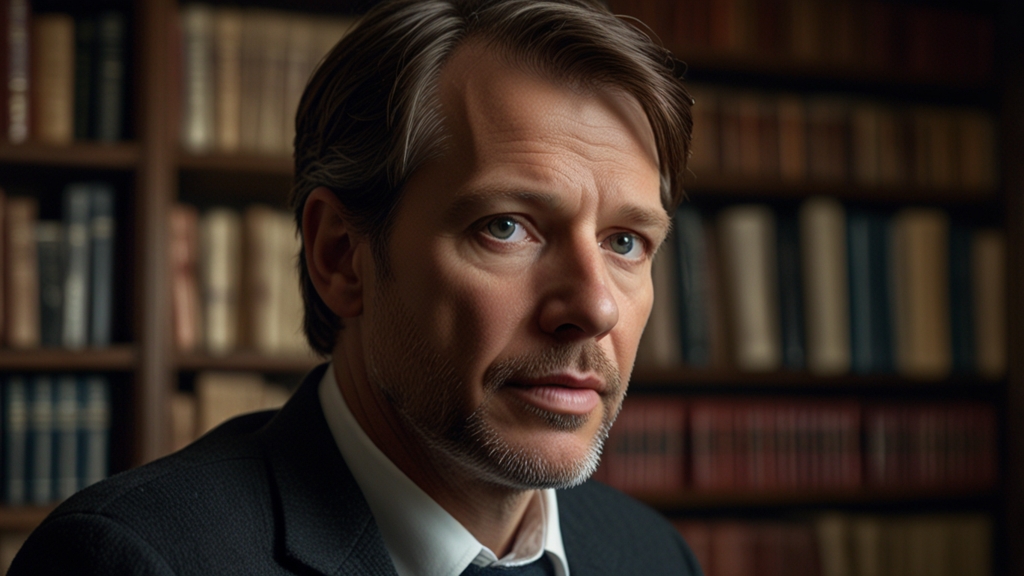Crumbling Faith: Why Prophets Are Ignored in the Modern World
Throughout history, prophets have been revered, feared, and followed. Their words held weight and influenced the actions and beliefs of entire civilizations. However, in the modern era, the voices of these once powerful figures often fall on deaf ears. Why has the role of the prophet diminished in contemporary society? Several factors contribute to this shift, including increased secularization, advancements in science and technology, and the proliferation of information.
Secularization and Modern Skepticism
The modern world has seen a significant rise in secularization, with many societies moving away from religiosity and towards secular, empirical forms of understanding. This transition means that the belief systems that once gave prophets their authority are no longer as influential.
"The waning influence of prophets is a reflection of broader cultural shifts toward skepticism and empirical evidence. As societies grow more secular, the mystical and the divine are often relegated to the sphere of myth and legend." - Dr. Emily Carter, Sociologist
Increased education and access to diverse perspectives encourage individuals to question traditional religious narratives. This critical approach can render the proclamations of modern-day prophets as dubious, if not irrelevant, to their lives.
The Influence of Science and Technology
An ever-growing reliance on science and technology further marginalizes the influence of prophets. In an age where empirical evidence and scientific method reign supreme, prophetic visions and divine revelations can seem antiquated. People now turn to science for answers to life's big questions, from the origins of the universe to the intricacies of human behavior.
Furthermore, technology allows instant access to a plethora of information, empowering individuals to form their own opinions based on a wide array of sources. This democratization of knowledge makes the authoritative voice of the prophet just one among many, often diluted amid the cacophony of the digital age.
The Proliferation of Information
We live in an era of information overload. With the Internet, social media, and 24-hour news cycles, people are bombarded with more information than they can possibly process. In such an environment, prophetic messages, which often require contemplation and deep engagement, struggle to capture attention.
"In today's fast-paced world, the profound messages of prophets are easily drowned in the sea of trivial content. The demand for instant gratification and surface-level engagement leaves little room for the deep reflection that prophetic wisdom necessitates." - Professor Laura Mitchell, Media Studies Expert
This incessant stream of content has also led to shorter attention spans. In a world where soundbites and clickbait headlines dominate, the nuanced and often lengthy discourses of prophets fail to resonate with the masses. The modern individual, seeking quick answers and immediate solutions, finds little appeal in the introspective and often challenging messages delivered by prophets.
The Changing Role of Spiritual Leaders
While traditional prophets may be sidelined, it is essential to recognize the evolving landscape of spiritual leadership. Modern spiritual leaders often adapt to contemporary means of communication, using social media platforms, podcasts, and live streams to reach their audiences. These new-age prophets may not always fit the traditional mold, but they fulfill similar roles by providing guidance, inspiration, and a sense of community to those who seek it.
However, even these leaders must compete with a myriad of distractions and competing voices. The path to gaining and sustaining a following today is fraught with challenges, as authenticity and relatability often take precedence over divine inspiration or ancient wisdom.
Conclusion
The diminished importance of prophets in the modern world can be attributed to a combination of secularization, the dominance of scientific thought, and the overwhelming proliferation of information. Despite this, the human desire for meaning and guidance remains unchanged. While traditional prophets may be ignored, new forms of spiritual leadership are emerging to fill the void, albeit in ways that are more attuned to the contemporary zeitgeist. Understanding this evolution is crucial for grappling with the complexities of faith and spirituality in the 21st century.









